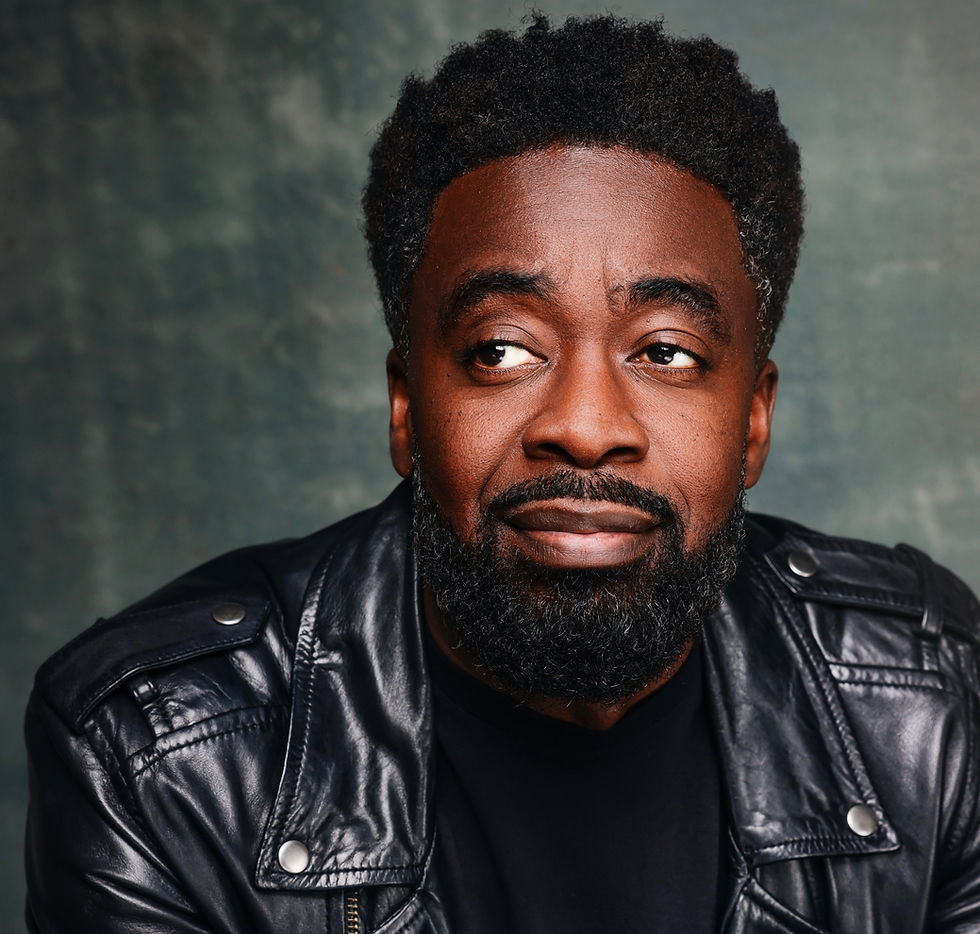Politics As Usual
- UpRising Editors

- Apr 21, 2024
- 4 min read
[THE MAIN EVENT]

Hip-hop’s relationship with U.S. presidents is... complicated. Jesse Washington—director and writer of the upcoming documentary Hip-Hop and the White House—speaks on covering the past, present, and future of this imperfect union.
UpRising: How did the idea for Hip-Hop and the White House come about?
Jesse Washington: Several of my colleagues envisioned it as a brief YouTube series. When one of my colleagues left for another job, they asked me to come in and direct. I picked up the baton, and over the next several months, it grew as we realized what a deep, fertile, and important topic it was. And so what started out being thought of as a couple of quick joints on YouTube corresponding to different presidential administrations ended up as a full-length Hulu documentary.
Jeezy is an executive producer and also narrates the doc. Why was it important to have him involved?
There's no way we could have done this doc without his full participation. Jeezy has one of the biggest political songs of any genre ever. Go down the history of songs about presidents and presidential administrations; his is at the top of the list. It's wild. Going into it, I didn't know he recorded it months before [President] Obama was elected. This man saw the future. Based on the stature of that song alone, he had to be in it. Fortunately, he agreed to participate.
The timing and scope of this documentary beg the question: What impact will hip-hop have on this year’s upcoming presidential election. What’s your take?
We're in an interesting moment politically in this country. We're in uncharted waters—and not only in terms of the types of candidates on the ballot for president this fall, but also the position of Black voters. That's why this documentary is so timely. Hip-hop has more influence than it has ever had before in a presidential sense, because our reach is multi-generational. All of these artists can speak to hip-hop in a very powerful way when it comes to this election. So what are we going to say and do?One of the great things about this project was that I learned so much—I got to interview almost 20 people with different perspectives, experience, and wisdom. Congresswoman Maxine Waters said hip-hop has not realized its full influence yet, so we have the potential to do so much more. Bakari Kitwana gave a very specific suggestion: properly organize. If hip-hop wants to have a full influence—not just on who's elected, but what hip-hop culture and our communities can get in exchange for our support—then we need to partner with individuals and organizations who are experienced in these spaces. That is how you actually get things done. The rap game works the same way. If anybody knows about how to get to the plug and influence things, it’s hip-hop. In a way, we're really built for it. So we have to strategize and have a plan. Not only could hip-hop play a role in the election; hip-hop could play a role in what comes after, no matter who gets into office.
This is your first full-length documentary, and you covered a robust topic. Did you run up against any limitations in how deeply you could capture it?
Oh, yeah. All kinds of stuff. It's hard to put music in documentaries because it's expensive. [Lil] Wayne had a song called “Georgia… Bush” after [Hurricane] Katrina, and he’s rapping over Ray Charles. Our music people were like, “This song is unclearable.” [Laughs] I would've loved to put that in there. I would've loved to go down the Kanye-[Donald] Trump rabbithole and really deconstruct that whole situation. There's a lot more moments as far as hip-hop getting at presidents that I would've liked to explore. But you only got so much time. You only got so much money.
Anything else you want to add about your experience making this doc?
A documentary doesn't just take a village—it takes, like, a whole city. What people see with Hip-Hop and the White House is the result of incredible talents by several dozen people. I'm really proud of the fact that almost our entire production was by Black people at every level. Shout to [co-executive producer] Jordan Benston at Oracle Media. She was able to hire all-Black crews in cities across the country. We had people who have worked in this industry for decades walk into our set and their jaw would drop because they said, “I've been doing this for 20 or 30 years and I've never seen an all-Black crew before.” And these people are at the top of the game. It was inspiring to see them at work and to work with them. That's really powerful about what Andscape is doing: Not only producing and telling Black stories, but doing it with Black creatives, Black technicians. Black everything.
Hip-Hop and the White House debuts April 22 on Hulu. The hour-long documentary, which is the first of Andscape’s anthology series, &360, features appearances by Jeezy, Common, Rep. Maxine Waters, Waka Flocka Flame, Chika, KRS-One, YG, and others.
The UpRising newsletter is a mixtape for your mind filled with information that's intellectual and irreverent—no skips. Whether it's film, music, art, food or the culture full stop, UpRising will serve as the starting point to your deep dives.



